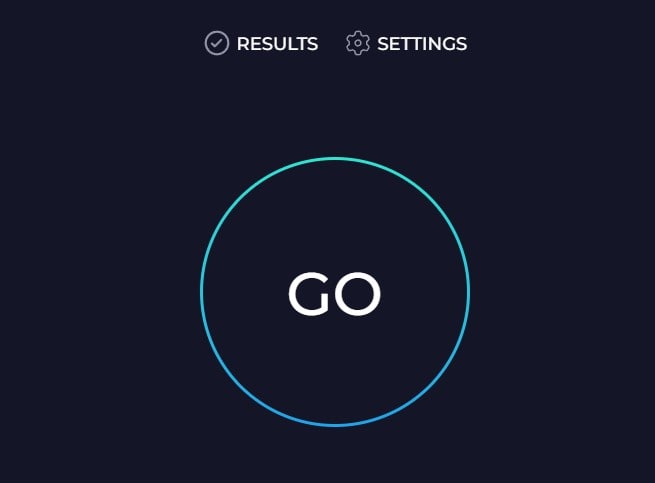
Checking a VPN connection is not a paranoid move. In fact, it’s something we should all be doing, especially when we first start connecting after buying a VPN. Just think about your heart sinking when, after hours of browsing and thinking your traffic is encrypted, you find the connection dropped or wasn’t established at all. The biggest reason to keep checking from time to time is that verifying only takes a couple of seconds. And if such a quick action will give you a strong sense of security, why not? Without further ado, let’s show you how to check a VPN.
VPN Testing: What are the parameters?
Although there are several things you can do to ensure your VPN’s functionality, there are a few distinct parameters, if found working, can reassure your worries. These are as follows:
- IP Address check – You can perform an IP address check to learn whether your VPN is actually changing your IP or not. If the IP address of your device, before using a VPN and after establishing a connection differ, it means your VPN is working fine, at least in regard to altering the IP address.
- Look for DNS leaks – Many believe a VPN is only responsible for altering an IP address. But it is not. It is a tech that is responsible for maximum online privacy and security. Hence, a DNS leak simply means the VPN is not as effective. Thus, perform a DNS leak test as a part of your VPN testing to ensure security.
- WebRTC leaks – Similarly, a VPN is supposed to prevent WebRTC leaks, but if it doesn’t, you ought to get a new one. Thus, you should perform a WebRTC leak test as a part of your VPN’s health inspection.
- Software glitches – At times, the VPN app might show the connection status as Active or Connected. But in reality, it isn’t. Hence, always make sure the software is working fine and make regular app updates.
- Slow connection speed – Slow internet is as bad as no internet. Thus, if you observe a sudden and sharp drop in your internet speed, chances are your VPN is not working correctly.
What’s the first indicator of a VPN successful connection?
Although not 100% foolproof, the following is the easiest way to check. Simply take notice of Google, Facebook, Instagram, and other pages that support the language of the country whose server you accessed. Was the page translated automatically when you opened it? If so, you’re at least on the right path.
How to check a VPN online
There are plenty of websites available that can tell you your IP address and the exact location on a map. If you don’t want any more details than that, we recommend you do this:
- Visit WhatsMyIP.org.
- Copy the IP address at the top of the page.
- Click on IP Location in the menu on the left side.
- Paste the Ip address into the text field.
- Click on Show Location.
- This will tell you if you are connected to the right country.
Check a VPN speed online
We recommend doing a test of your native Internet speed, so you have a frame of reference.
- Open Speedtest.net in your browser.

- Click on GO.
- Wait for the test to finish.
- Write down the results, or better yet, screenshot them.
- Connect to a VPN server of your choice.
- Repeat the test.
- Compare the results.
Advanced steps
For those that are tech-savvy or want an in-depth look, we present three options. Some of the details include the browser and screen resolution you are using, whether they detected a VPN, the port you are using, and much more.
- Visit WhatsMyIP’s More Info About You page.
- Click on Allow when prompted.
- Visit IPLeak.net.In addition to the things we mentioned, this website also allows you to check for IP, DNS, and WebRTC leak. These can happen even when connected to a VPN and are a major security concern. Although they might not reveal your identity, since the traffic is encrypted, they can trigger a streaming service or website to recognize and block your VPN.
- Visit ExpressVPN’s WhatsMyIP. It does the same job but is much more user friendly and eye-pleasing.
Steps to check a VPN inside an app
A lot of VPN providers started implementing a built-in way of checking your VPN connection speed. Although this shouldn’t be a factor when making a purchase, it’s a nice addition.
Checking VPN speed via ExpressVPN
This will work for their app for Windows, macOS, and Linux.
- Launch ExpressVPN.
- Click on the three horizontal lines in the top left corner.
- Choose Speed Test from the drop-down menu.
- Click on Run Test in the bottom right corner.
- Wait for the information to fill up.
- Optional. Click on Save Results. They will be saved as a text file.
- Choose the best server for your purpose, and connect to it.
Sample Test of Different VPNs
| VPN Service | Server Location | Download Speed (Mbps) | Upload Speed (Mbps) | Ping (ms) |
|---|---|---|---|---|
| ExpressVPN | New York, USA | 96.8 | 78.5 | 21 |
| NordVPN | London, UK | 91.2 | 73.4 | 29 |
| CyberGhost VPN | Frankfurt, Germany | 85.3 | 66.2 | 33 |
| Private Internet Access | Tokyo, Japan | 82.7 | 63.8 | 38 |
| Surfshark | Sydney, Australia | 79.4 | 60.1 | 41 |
| VyprVPN | Toronto, Canada | 75.8 | 57.9 | 45 |
| IPVanish | Singapore | 72.3 | 54.7 | 48 |
| Hotspot Shield | San Francisco, USA | 69.6 | 51.2 | 52 |
| ProtonVPN | Zurich, Switzerland | 66.2 | 48.1 | 55 |
| TunnelBear | Amsterdam, Netherlands | 62.9 | 45.3 | 59 |
